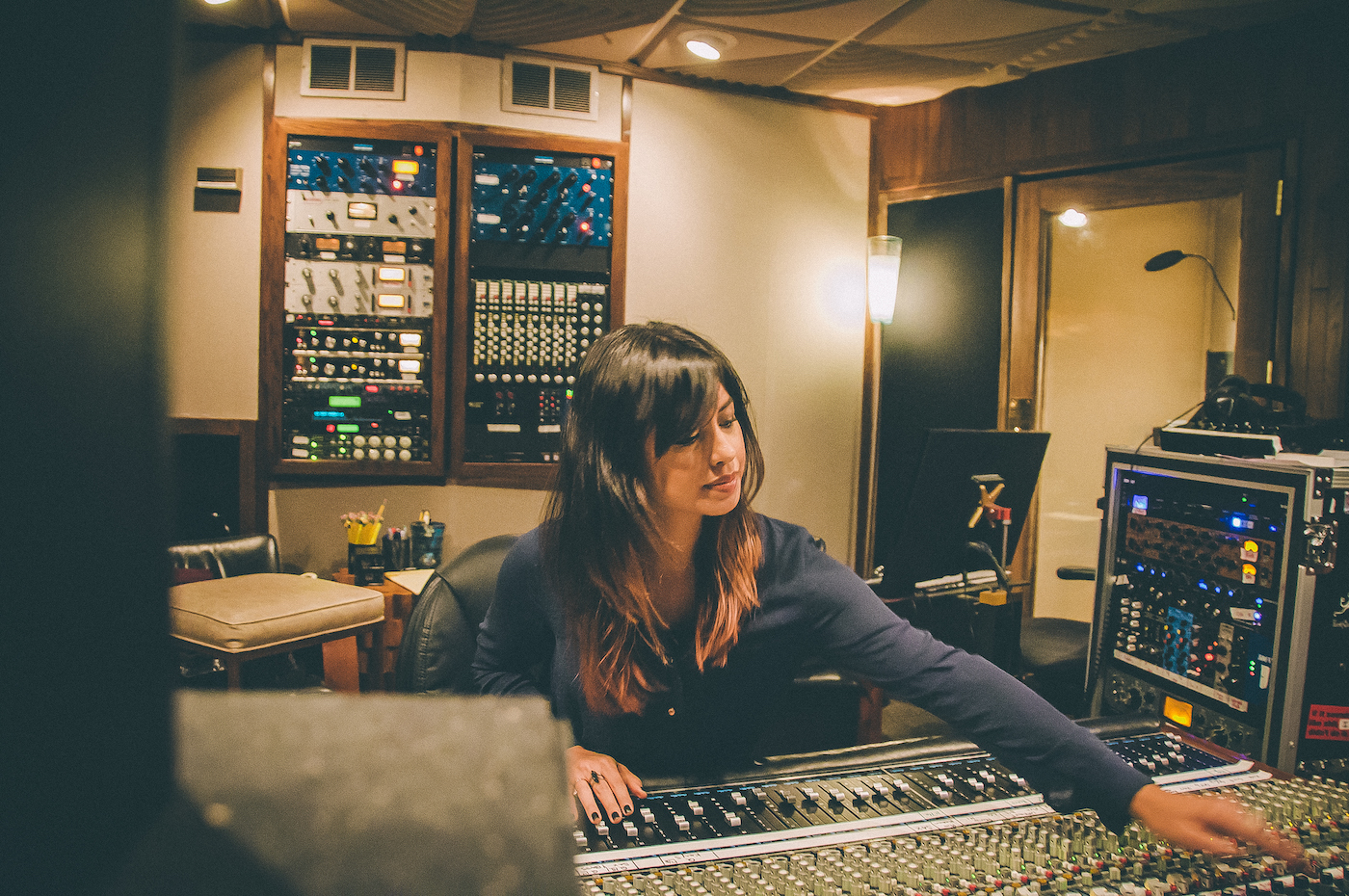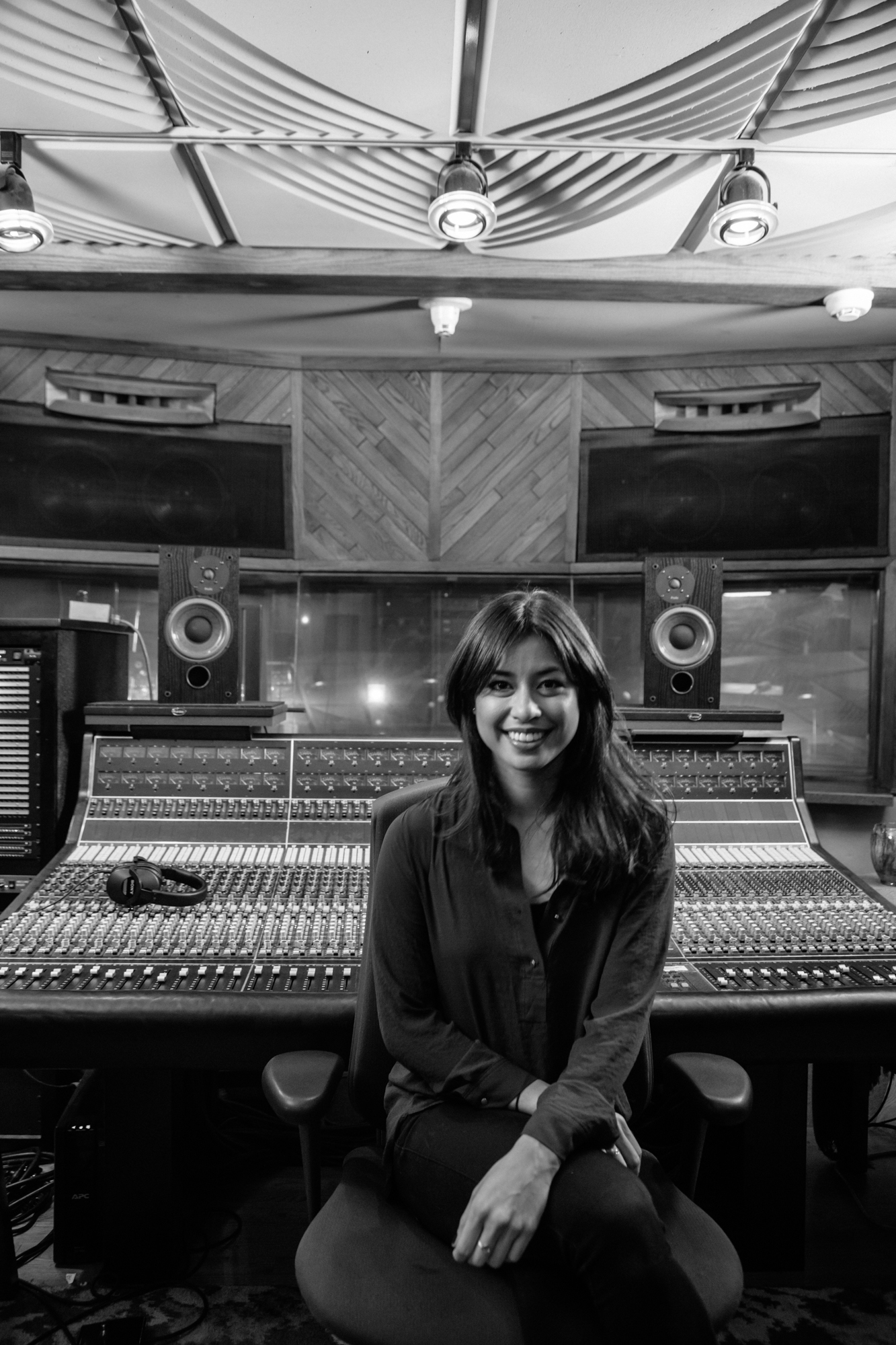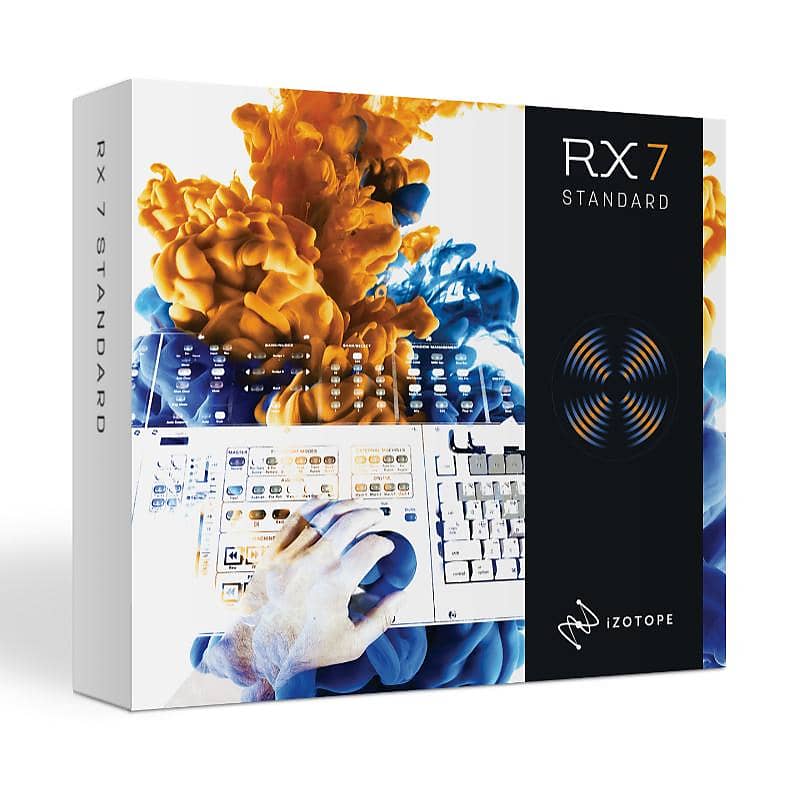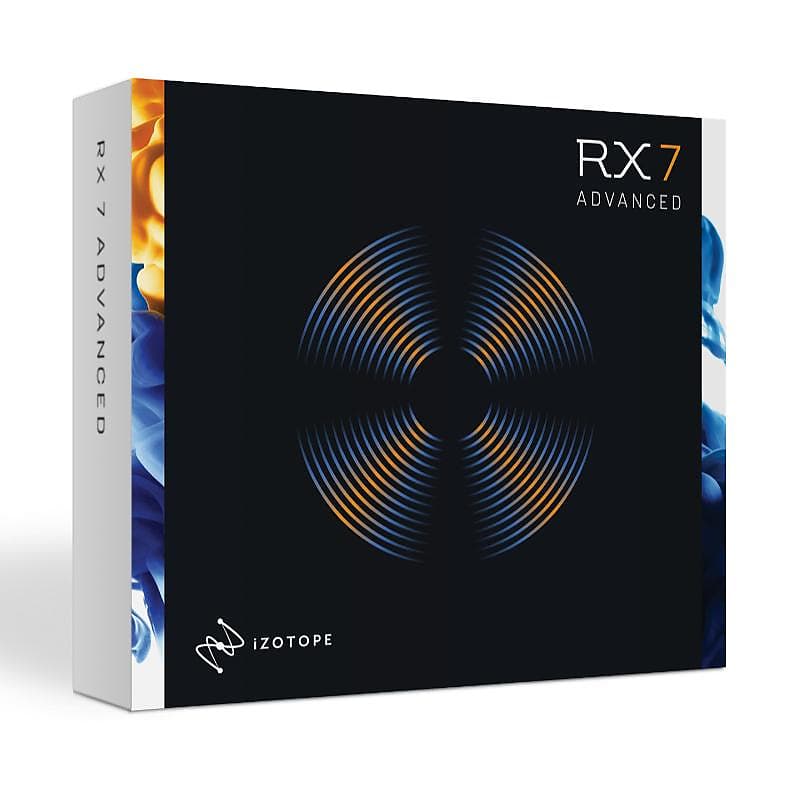When Shani Gandhi first came to Nashville as a studio intern, she didn't know a Dumble from a Dobro, and has admitted in interviews that she'd never heard a mandolin played in a studio setting. Fast-forward a decade and she's an award-winning producer, engineer, and mixer whose skills are in demand by folk, bluegrass, Americana, and country artists. Her discography includes Alison Krauss & Union Station, George Jones & The Smoky Mountain Boys, Dierks Bentley, The Mountain Goats, Parker Millsap, Jewel, and Kelsea Ballerini. In 2017, her engineering work on Sarah Jarosz's Undercurrent won her a Grammy for Best Folk Album and, with Gary Paczosa, a nomination for Best Engineered Album, Non-Classical.
She was no stranger to music or a control room when she arrived in Tennessee. Born in Singapore and raised in Perth, Australia, she was surrounded by music throughout her childhood and adolescence. She studied piano, violin, and cello, her parents listened to a variety of music, from contemporary to standards, and her older sister leaned toward popular artists. As her own tastes expanded into EDM and pop, she became fascinated with audio.
Her desire to study in the US brought her to New York and Ithaca College, from which she holds a degree in sound recording technology. She was, in fact, the first woman to graduate from the program. The curriculum required an internship, and that brought her to Nashville, where she worked and studied with Michael Wagener, the tour de force behind many of the gold and platinum albums that shaped 1980s hard rock and what later came to be known as "hair metal." She returned to Ithaca, graduated, and moved back to Nashville to work as Wagener's assistant engineer.
As her network grew, she began assisting and setting up mixes for other Nashville producers. This led her to one of Nashville's top names, Gary Paczosa, who hired her on as his assistant, in a partnership that continued for six years. As their work progressed, so did her responsibilities: from assisting to co-engineering, and eventually co-producing and co-mixing. She also gained hands-on experience in a variety of studios, as they often tracked outside of Nashville.
Today she mostly works out of her own studio in Berry Hill, which is where she was, during a rare window of available time, when she spoke with Reverb.
For more information on Shani Gandhi and her work, visit her website here.

I'm sure you've been asked this question many times, but why Ithaca?
I have no idea why I opted for that! I really didn't know how different New York state was going to be from New York City. I truly had no idea. I was looking for schools, and I used my very limited knowledge of America to nix certain states that were nowhere near a major music hub and possible internship opportunities. I knew enough to do that. But I left all the New York state colleges in play because I thought at the very least that they would have access to New York City. I thought I could study there, and on the weekends I could get a train to New York.
Well, you can, if you want to ride that train for a while.
It was more like ride a Greyhound for six hours!
Did you consider going to school in Nashville?
Nashville wasn't even on my radar. I thought New York, LA, or maybe Chicago, but I didn't know anything about country music, so certainly not Nashville. Being from Perth, that just wasn't... you know, for years my mum thought I lived in Nashville, Texas!
You traveled to different studios with Gary Paczosa and brought your recording chains to the sessions. What were the benefits and challenges of changing locations? Do you miss it?
Oh, I loved doing that. It was just heavenly. One of the first projects I did with Gary, we went to Asheville, North Carolina, to track at Echo Mountain. It was such an amazing experience because everyone's just there to make records, and what I would imagine life was like back when there were big budgets. Now everyone has to multitask. We are constantly working on all different projects. Artists have to go play shows, or be with their families, they've got to go home, all these things.
"When you're going into a studio where you don't know anything, it's nice to have something that you know, whether it's your headphones or your speakers."
But when you're making a record on location, that's all you're there for. It's such an incredible experience, especially in Asheville, because you live in the band house and become a family. You're in the trenches, which I think brings out so many different possibilities and personalities, for better or worse. If I could do that all the time, I would.
Gary definitely has his chain that he likes to bring with him, and I understand that. When you're going into a studio where you don't know anything, it's nice to have something that you know, whether it's your headphones or your speakers, and for him and I both, it's having a chain, like microphone, pre, compressor, EQ, that is yours. You know exactly how it's supposed to sound, so you can tailor everything else you do to that. It's just having one known entity that you can center yourself around, so I still do that to this day.
Do you travel often for sessions?
Not a whole lot. I'll go to New York. I'll go to Asheville. Mostly the "traveling" is going to other studios to track, because my studio is a mix-and-overdub sort of situation. So whenever I'm tracking a big band, I'll go to an actual tracking studio and I'll pack my little rig with me.
What is in that rig?
A pair of mics, either Gefell UMT70s or Neumann KM 54s or KM 84s that I will usually put on the acoustic guitar, my GML EQ, and my API 2500. I always bring my AEA R88 for drum overheads, because if everything else is failing from the drums, like all the direct mics are failing, that's one thing that I just push up and it sounds amazing going through nothing.
How many projects do you work on in a year? Obviously that's a varying number, but on average, what would you say?
I do about two major projects a year. That's producing, engineering, mixing, so, from the ground up. I'll usually mix maybe five more records and engineer five more. And there's always a smattering of singles here and there, either to be tracked or mixed. It changes all the time, which I love. I would get so bored if things were the same. A few weeks ago I was up against a deadline where I had two folk albums and four pop singles all at the same time. Then I went to LA and New York for meetings, came back, and started engineering a record for a country artist and mixing two more. It's the fun kind of exhausting.
You came into engineering with a background in, and a love for, pop music and EDM. In Ithaca, you worked with orchestras and choirs. Then you came to Nashville, where you worked in bluegrass with Gary Paczosa and metal and hard rock with Michael Wagener. Was there a learning curve?
There was a huge learning curve. With Michael Wagener, just learning the makes and models of guitars—he'd say, "Go grab this one, go grab that one," and I was like, "I have no idea what you just said." Also, I had come from working mostly in acoustic and classical situations, so learning how amps worked, impedance, how to comp an electric guitar solo—all of that was completely new. Thankfully, he loves being a teacher, so he would take whole days to teach me and teach me and teach me, and that was incredible.
From there, going into folk and bluegrass, actually, it's not that different. Bluegrass and metal players are pretty similar in that they care about tone, they talk about gear, they talk about their heroes, and they can shred! So I also had to learn who were the people they were referencing. They would say, "Make this solo sound like so-and-so," and I had no idea. I had to do a lot of research.
You're known for specializing in recording guitars. Are there certain techniques you swear by?
With acoustic guitars, I go for a mic that has a pretty and non-abrasive top-end. I always stereo-mic everything. It's a technique I learned from Gary, and I find that that's easier to mix. I do one mic coming from the top and one from the bottom, and I get pretty freaking close—closer than you would think. And a quick compressor, like the 33609 or a dbx 160, just a little bit of compression to tame something, and then EQ, just taking out the very, very lows and giving it a little bit of air on top. I try not to do anything more than that.
This is why I like having my chain. If I'm in my control room, wrestling with this sound and I just cannot get it—but I'm using all my own gear in my tracking room—then I know something else is wrong, and that's a nice way to deduce the source of the problem or issue so you're not chasing your tail. I can sit with the artist and we can figure it out.
With electric guitars, again, I stereo-mic everything. I'm not as anal about it, because you can create a nice secondary mic in the mix, but I do try to stereo-mic things, usually with a condenser and a ribbon, or a condenser and a dynamic, something like that, to give it different textures.
This is something I learned from Michael Wagener: There's no point in EQ-ing and compressing electric guitars unless you have to, unless you're in a Nashville-type session, where you just do not have time to go out there. Otherwise, the guitar itself is EQ'd, and you can pick the pickups, and pick the amp, and move the mic all around the speaker to get it brighter or darker. There are so many things you can do before you even need to reach for the EQ knob.
When I'm doing a big tracking session, I try to keep things as simple as possible so I don't have to dart all over the control room, tweaking all these knobs. So electric guitar, for me, is usually just going through a pre and into print. For safety's sake, I choose a pre like a Neve 1073, which has EQ on it, just in case.
Which mics do you prefer for electric guitar?
I'll go with something that's a pretty full spectrum and can take the hit. If I'm in a nice studio and they've got a bunch of nice mics, maybe a Neumann U 67 or 87, or a Blue Bottle, or something like that. Otherwise, the AT 4033 is a good one, or the Shure SM5B. SM57s work just fine too. For ribbon mics, I like the RCA BK-5B.
In a podcast interview, you mentioned that it's easy for you to over-mix or overthink a song because you are so focused. How do you reel yourself in? At the same time, some artists want to recut and recut. Do you sometimes have to make them stop?
Yes. Sometimes you need to pull them out of the room, put them in front of you in the control room, and comp where they can see it and hear it. When you have that type of artist, you need to know when to say, "That was amazing. Now put your guitar down, come in here, and let me play you what you just played."
Sometimes they're frustrated and they don't want to listen to you comp, because they just hear all their bad stuff, so I ask, "Do you trust me?" They say yes, and I tell them, "I've got this. I'm going to put it together tonight, I'll give it to you tomorrow, and you can tell me what you need me to fix." It's about always establishing trust with your artists or musicians so that they know the wizardry that can come in post-production and in comping, and just leave you to it.
With over-mixing, it's the opposite. It's me having enough trust in my artist to deliver the mix to them maybe even before I think it's ready. If I know this artist has really good input on my mixes, I'll give it to them and let them come back to me, and more often than not I'll be like, "That's exactly what I needed to hear. Of course that needs to be turned up." or "Of course this needs to be panned on the other side! I couldn't see the forest past the tree."
If you're working with an artist who can't deal with any of that, you have to make sure that you have a pretty much ready-to-go master before you let them hear it. In that case, I lean on my friends. I'll send them the mix and ask them what they think, or I go home and listen to it in my car, which is my number one thing.
That's where you do your listening?

For sure. That's where I make my notes. I'll mix into the night, print it, listen to it on the way home, listen to it again in the morning, make notes on the way to the studio, then do some more mixing.
In a nice mixing room with nice speakers, the sound can actually get a little overwhelming to my ears and it's hard to pinpoint what's off-balance sometimes. Are the vocals too loud? Is the bass too woofy? Sometimes it's hard because your ears are fatigued from listening. I have one of those little mono Bluetooth speakers, because sometimes you just need to package it and make it small. As soon as you send it through a Bluetooth, you can tell immediately that the vocal is too hot.
That's what the car is for me. It's a lo-fi system and it packages it nicely. I can make very broad notes—"That needs to come up," "This is overtaking that"—whereas pristine speakers sometimes make everything sound too nice. And let's be honest: The car is where people do a lot of their listening.
You work in Cubase. What do you like about it?
Everything. I love it because it's so malleable. I can change all my hotkeys, I can make it look however I want, any colors, any shades. I can move this panel to be up there. I can literally just make it whatever I want it to be. When I'm mixing, I want the DAW to almost become invisible. I don't want anything in my way, which is why I always make sure I set up all my tracks and all my sends and returns before I start a mix. I want all that technical stuff to disappear so I can just be creative.
When I'm working in Pro Tools, I find that there are at least three extra steps I need to take to get from point A to B, while Cubase has some way that you can design it to get around it. That's what I love. It makes sense to me, and to my brain, and doesn't get in the way.
How long have you used it?
Pretty much since I got here. Strangely enough, both Michael and Gary used Cubase. Michael was on Nuendo, but same thing. So 10 years.
Which version are you using?
I'm on 8.5. I'm very far behind, but that's because my computer won't handle anything faster. So hopefully that's my next upgrade, when I finish my current project and can install it.
This is an interesting point: In a world where it seems everyone wants the latest and greatest and shiniest, you're making award-winning albums without that.
Yeah, I definitely don't buy into that. You don't need to do that unless something is hindering your sound. For instance, if you've got crummy, old-school converters, that is actually going to affect the sound of your projects. That's not to say you couldn't get around it, but those are things that I do consider being a very worthy upgrade.
Otherwise, that argument doesn't hold up. It's about your skills, and it's about getting all of this gear out of the way of creativity, so whatever does that for you. If you want to make records in GarageBand, hell yeah, do that too! Whatever works for you. There are no rules, and you definitely do not need to spend an exorbitant amount of money to make a radio-ready record.
What are some notable improvements you've seen in recording technology?
iZotope has made my life easier. That company is amazing. The things the RX plugins can do... I work a lot in acoustic music, and there's a lot of mouth noise, guitar string noise, all that stuff I used to have to get out by hand by drawing the waveform. My job as an assistant was to clean up all that stuff, and there were just so many ways that you could do it. Now you have iZotope and it's a one-click situation. That has been the most incredible thing.
I love the new, affordable plugins, like Valhalla or Goodhertz. The Valhalla plugins are all $50 and they're so good. I also love that the tuning software is better, because we can try and fight that as much as we want, but it's not going anywhere. At least now we have things that sound pretty good and don't ruin the song. They actually make it a little better. That's fun for me.
Are there changes you'd like to see in the industry?
Oh, gosh. In general, I'd love for the standard to go up again. I do feel like we are making that change, and a lot of my studio-owner friends feel it too. I feel like we are going back to hi-fi-sounding records. There was definitely a time when it was cool to sound like shit, and we're still there a little bit. But I think more people are reaching for better-sounding things, and more artists are demanding better-sounding products. I do feel like there has been a really nice shift that way, and I hope it keeps going.
Many studios have closed, producers and engineers have moved into home and personal spaces, and technology allows people to create music in their bedrooms. What are your thoughts about the future of audio and recording in general?
It's hard for me to say, because I love electronic and pop music, so I have no issue with a song being completely made on a computer. I think that's awesome, and I especially think it's awesome when I meet someone who... it's not that they chose to make music on their computer; it's that they grew up without access to instruments.
I grew up playing piano, cello, and violin because my parents thought that was important and they had the means to give me those instruments. So I think it's amazing that computers and GarageBand and software are giving really musical people who might not have had the opportunities I had the ability to make music without being formally trained. So I'm all about that.
It's the badly recorded real instruments that are driving me nuts, and the bad mixes from someone who thinks that crummy is better and they're actually going for that vibe. That's what bums me out. So I don't know. I'm not a major studio owner, but I've heard from friends who are that they are seeing an actual change, that people are looking for that again. I just don't know whether it's too little, too late, and I don't have enough information to report on that.
I'm mostly in the folk and bluegrass world, where people are obsessed with tone—the tone they're giving out and the tone you're capturing. They demand excellence. Those are the bands that are coming to me, and I do feel lucky in that way. So again, I'm a little bit biased in my answer to your question. I see hope, but maybe I've got my blinders on!


